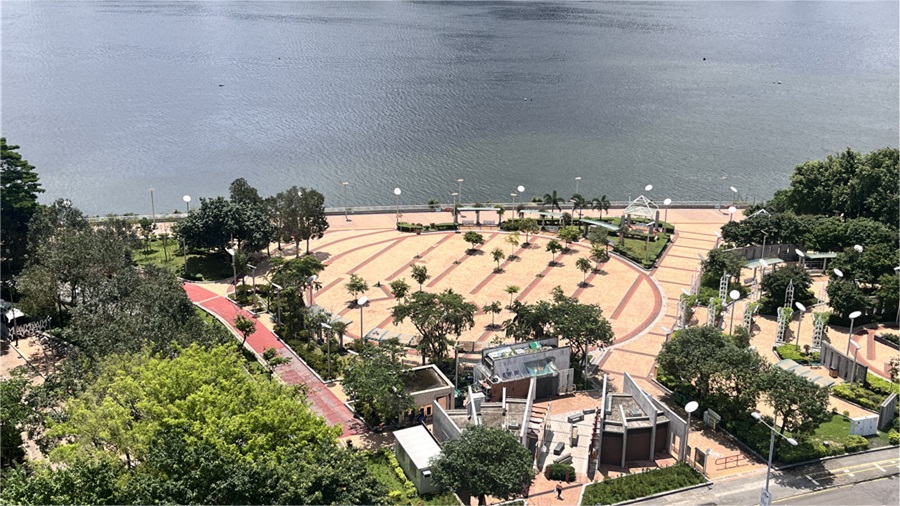From shadow to light: China's anti-drug efforts illuminate lives of HIV carriers
CHENGDU, June 26 (Xinhua) -- Last winter, Niuniu Mo (pseudonym), a 28-year-old HIV carrier in southwest China's Sichuan Province, gave birth to a healthy baby girl through a C-section. This hard-won child became the best New Year gift for the family.
Once devastated by drugs and disease, the woman, a Yi ethnic minority, has now transformed herself and treasured her life more than ever. "Having a child brings new hope in my life," she said.
Niuniu Mo's hometown, the Liangshan Yi Autonomous Prefecture, was a key route for drugs entering China from the notorious "Golden Triangle." In the 1980s, it became a major area for drug trafficking, distribution and consumption. And to make it worse, the area was hard hit by AIDS as drug abusers sharing needles easily spread the HIV virus.
In her previous marriage, she was dragged into drug addiction and contracted HIV from her drug-abusing ex-husband, who later died from AIDS. She was arrested for drug use soon afterward and put under compulsory drug treatment.
In 2019, after completing compulsory rehab, she returned to her hometown in Xide County and began a three-year community rehab program. The program encompasses her regular visits to the community rehab center for urine tests, and counseling services as well as home visits conducted by staffers.
Niuniu Mo remarried in early 2023 and later became pregnant. During pregnancy, she received free antiretroviral therapy medication provided by the government.
Niuniu Mo's story reflects China's resolution in combating drug trafficking, preventing the rise of HIV infection rates and helping ex-drug addicts reintegrate into society.
Since 2000, China has issued four five-year action plans aimed at curbing the spread of AIDS. Starting in 2004, China initiated support policies for people living with HIV/AIDS and their families, including the provision of medications and living assistance. In addition, orphans of deceased AIDS patients would receive free education.
In late 2012, as China launched a war against poverty, drug and HIV/AIDS issues, the latter was put on top of the agenda in Liangshan.
In 2016, Lu Gang, a police officer, was posted at the Guangming Township in Xide County, responsible for the anti-drug campaign and HIV prevention. His new role involved taking care of over 300 ex-addicts, of which 20 have AIDS.
"HIV carriers are very sensitive, in deep fear of discrimination and being identified," said Lu. "Talking to me about what they are going through is a tall order." So instead of dressing up in police uniform, Lu donned plain clothes, and always asked for permission before conducting home visits.
"In comparison to the initial detox period, their psychological 'detox' is key to recovery," noted Lu. "For HIV carriers, in particular, regaining confidence in life is even harder because they have to overcome both addiction and discrimination."
Over the years, Lu has been making every effort in helping treated addicts find jobs, changing the life trajectory of numerous families. He also composed many popular anti-drug songs.
In 2017, a campaign was launched in Liangshan centering on HIV/AIDS prevention and medical treatment advancement as part of the poverty alleviation efforts. From 2017 to 2020, a total of 640 million yuan (about 90 million U.S. dollars) was injected in the campaign by the central and provincial governments.
In 2020, the four key counties that concentrated on HIV/AIDS prevention and control, namely Butuo, Zhaojue, Yuexi, and Meigu, not only achieved their poverty alleviation goals as scheduled, but also delivered outstanding results in HIV prevention: The HIV treatment coverage rate increased from 41.1 percent before 2017 to 94.81 percent, and the mother-to-child transmission rate of HIV declined from 9 percent to 3.66 percent.
Even more encouraging, about 95.55 percent of registered drug users from Liangshan have remained drug-free for at least three years.
Photos
Related Stories
- Greater Mekong Sub-region countries join hands to curb drug problems
- Drug cases drop for eight years in China
- China seizes 4.5 tonnes of drugs in border anti-narcotics enforcement
- China's top procuratorate issues typical cases of narcotic, psychotropic drug abuse
- Chinese police probe into money laundering case in anti-drug cooperation with U.S.
Copyright © 2024 People's Daily Online. All Rights Reserved.









